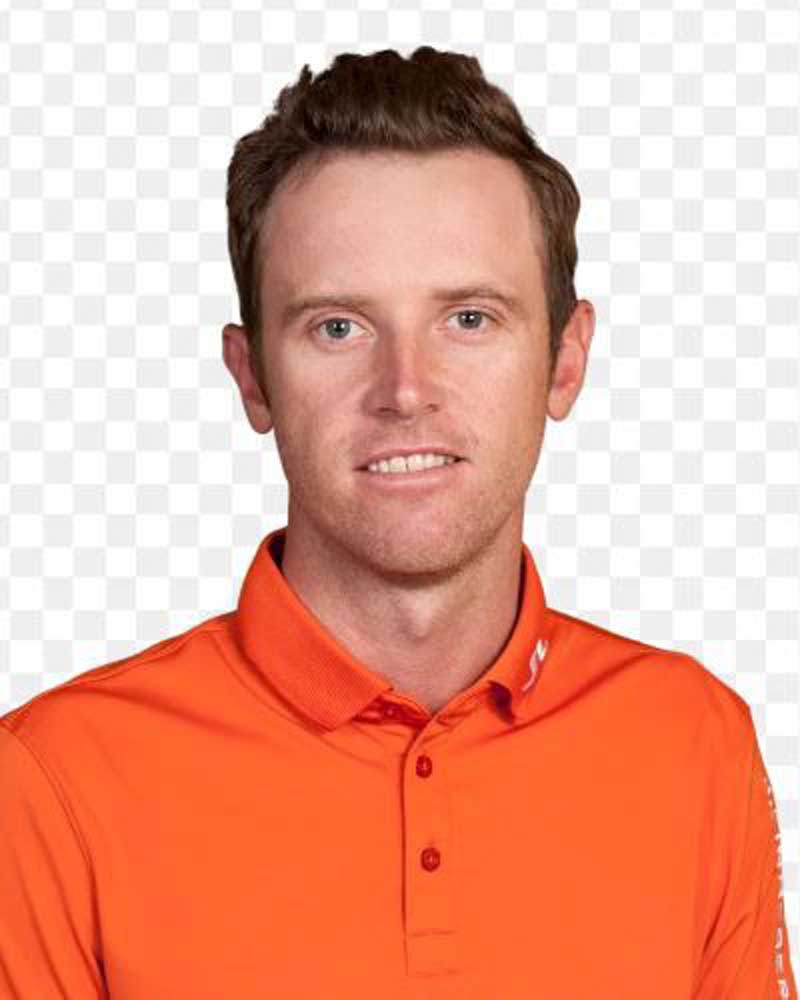Commentary: Former US Amateur champion Nick Flanagan on way his back, setting goals
Published 7:34 pm Saturday, August 3, 2019

- Nick Flanagan won the 2003 U.S. Amateur championship.
Golf can be the ultimate game of “what have you done for me lately?”
Such is the case for Nick Flanagan, grinding away at the 2019 Tanos Exploration II/Patterson-UTI Drilling Texas State Open last week, seemingly light years away from winning the U.S. Amateur during his youthful days when the game seemed so easy.
Flanagan’s name rang a bell when I noticed him in the pairings for the first two days of play of the state open at The Cascades Golf & Country Club. I remembered him winning the U.S. Amateur but my flashback didn’t register any other notable accomplishments.
A journeyman at the tender age of 35, I wondered where golf, the most difficult of games, had taken the young Austrailian phenom since his win in 2003 at famed Oakmont Country Club near Pittsburgh. He was 19 then and the youngest to ever win the U.S. Amateur at that time except for a guy named Tiger Woods, who won his first of three straight at age 18 in 1994 at TPC Sawgrass in Florida.
Winning the U.S. Amateur is a very big deal and puts Flanagan in the company of former winners such as Woods, Jack Nicklaus, Arnold Palmer, Lanny Wadkins and closer to home Scott Verplank and Hal Sutton. To win the top amateur event requires qualifying to get into the field, then passing a 36-hole medal qualifier to reach match play and then beating a host of other good players in five matches to reach the finals. The spoils of victory are terrific with an invitation to play in the Masters and exemptions into the U.S. and British Opens.
“I certainly enjoyed playing in the Masters but probably didn’t soak it all in at that time like I would today,” Flanagan said as we sat comfortably on lounge chairs in the breezeway leading to the clubhouse at the Cascades. “I played that first round with the defending champion Mike Weir and also Justin Leonard.”
A steady stream of people walked past us including the executive director of the North Texas PGA, Mark Harrison, a countryman of Flanagan’s from “Down Under.”
“Aussie,” Harrison said in passing.
Aussie indeed, for when Flanagan won the U.S. Amateur in 2003, he was the first foreign player to do so since 1971 when Gary Cowan of Canada won in medal play at Wilmington Country Club in Delaware. But Flanagan now lives in San Antonio and is married to Corinne, the daughter of former PGA Tour pro Tom Byrum.
The Flanagans are expecting their first child so earning a good check with an ultimate goal of returning to the PGA Tour has him focused on playing well. He played steady to make the 36-hole cut with rounds of 70 and 68.
“I played well the first two days but did not make enough putts to shoot a really low score like I know it out there,” Flanagan said.
He obviously made some putts for a third round 63 which positioned him for a good check. Flanagan had a final round of 68 to tie for 17th at 11-under 269. He picked up a check for $2,629.
Yet it all seemed so much easier back in 2004 when Flanagan turned pro a year after his big win at Oakmont. That win was also noteworthy in that his finals match with Casey Wittenberg went an extra 37th hole before Flanagan prevailed.
After Flanagan finished using his amateur exemptions, he turned pro in 2004 and won the Queensland Masters back home as part of the Australian developmental tour. The following year in 2005, Flanagan had a good finish at the British Open at St. Andrews and then earned a player’s card for the Nationwide Tour in 2006.
After a solid first year, Flanagan had a breakout season in 2007 with three wins to be named Player of the Year and more importantly earn a PGA Tour card via what was then called a “battlefield promotion.” At age 23, he was the youngest to attain that promotion.
“I won my third tournament in the fall so when I got my card, I had to sit out for several weeks because that was the first year of the Fed Ex Cup,” Flanagan said. “Then I had a few starts later that fall and did pretty well.”
Armed with an equipment contract, everything seemed to be falling in place but his career slowly began to stall.
“Those first two years on Tour were pretty good,” Flanagan said. “I made some money and had the good equipment contract but I think I just fell out of love with the game for a little while.”
Though he lost his PGA Tour privileges and returned to what was then called the Web.com Tour, he picked up another win in 2012. That success was short lived when he injured his left thumb and was forced to have surgery in 2013. It was a significant setback.
“After the surgery, it took so long to get back that I guess I just kind of lost my way or something,” Flanagan said. “I played poorly for two or three years. But then I started concentrating hard on my game again in 2016 and now I feel like I am playing as well as I ever have.”
Flanagan paused and pondered his current situation with a maturity forged from the long journey. He is enjoying his stay in Tyler as the guest of Jerry and Jane Irwin who live near the third tee at the Cascades. His connection to the Irwins was arranged by Cascades member Steve Braley who is friends with Byrum.
“What are you guys doing sitting out here in the heat?” Jane Irwin said as she passed by on her way inside the clubhouse. I’m sure she rolled her eyes when I pleaded that the air conditioning was too much of a shock to my system after being outdoors for several hours.
Flanagan noted that this was his first time to play the Cascades and that he liked the course though the greens had him a little baffled.
“I hit so many putts that I thought would go in but just veered off just a fraction or so. I think I just misread the grain because putting is usually the strongpoint of my game.”
As we began to wrap up our conversation, Flanagan said his focus now is on the mental side of the game — seeking to finish off his rounds and his tournaments. He uses a mental coach from Australia who works with professional athletes in different sports.
“I think what happened, looking back, is that I had a lot of early success and forgot to set goals,” Flanagan said. “I just got kind of complacent with it.”
Going forward, setting goals is Flanagan’s gameplan.
“Keep writing down goals and keep extending the goals, making them tougher,” he said. “That makes you work for it.”







